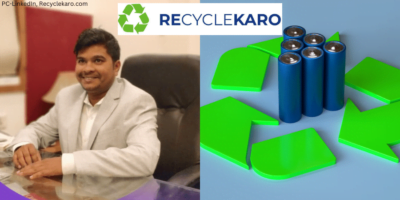The Indian government restricted biofuel imports in 2019, stating that an importing license from the Directorate General of Foreign Trade (DGFT) would be required.
This caused much inconvenience to many in the market but this move was intended to localise biofuel firms in India ( intentionally or unintentionally). Well, great for all of us.

What Is BioFuel And Why Do We Need It
A biofuel is any fuel derived from biomass, sometimes known as organic matter. In addition to animal waste, this comprises any type of plant or algae waste, including wood. These fuels are considered renewable energy sources since the life cycle organically refills them.

As a result, they are an ideal replacement for essential fuels such as fuel, oil, coal, and natural gas. These fossil fuels are formed over millions of years and are eventually extracted from the soil using costly and hazardous processes.
They are also consumed faster than they are generated. The world’s fossil fuel supplies will ultimately get exhausted, especially if we continue to use them at the current rate.
Fossil fuels are also very harmful to the environment. Hence we need an alternate fuel option that is efficient and abundant. This is where BioFuel can fill the gap.
Biofuels are nature friendly and can be created using very simple methods which anyone can practice. If you want to know more about creating bio-energy, read how this IIT engineer converts home kitchen waste into green biogas for cooking.
JAP Innogy

JAP’s primary business focus is on renewable energy, which aligns with the company’s People-Planet-Prosperity (P3) business philosophy and is infused with great sustainability credentials.
This business sector comprises three main modules that represent existing business interests as well as future business actions. Those 3 main modules are:-
#1 – Biofuels
#2 Waste To Energy
#3 Hydro Energy
#1 Biofuels
JAP is in the business of developing diverse feedstocks for the production of sustainable and profitable biofuel using unique and vibrant technologies. JAP specializes in the efficient processing of biofuels such as Agri wastes, animal waste, kitchen waste, and industrial waste.
JAP produces biogas based on the unique and superior BIMA & CSTR anaerobic digestion technologies for the biofuels, which may then be processed for the generation of power or bio-CNG & bio-CO2, as well as a very potent organic manure.
All of this is done in full and semi-autonomous modes for biofuels, which are the best solution to reduce greenhouse gas emissions. They can also be viewed as a form of energy security, serving as an alternative to limited-available fossil fuels.
#2 Waste To Energy
In India’s urban areas, around 55 million tonnes of municipal solid waste and 38 million litres of sewage waste are generated each year. Waste creation in India is likely to skyrocket in the coming years. Consumption levels and trash generation rates are projected to climb as more people migrate to cities and income levels rise.

The amount of waste created in India is expected to increase at a per capita rate of 1-1.33% every year. This has a substantial impact on the amount of land required for disposal, the economic expenses of collecting and transporting garbage, and the environmental consequences of increasing MSW generation levels.
Showing concern about this damage alone won’t do, JAP showed solutions to this problem and decided to convert this waste into energy. JAP uses three conversion methods :
1. Thermal Conversion: The technique involves the thermal decomposition of garbage at high temperatures. The waste is completely oxidized at high temperatures during this process. Incineration is the primary technological option in this category.
2. Thermo-chemical conversion: This process involves the breakdown of organic matter at high temperatures to produce either heat energy or biofuel or gas. They are effective for wastes with a high proportion of organic non-biodegradable substances and a low moisture content. Pyrolysis and gasification are the primary technological possibilities in this group.

3. Bio-chemical conversion: This method is based on the enzymatic degradation of organic waste by microbial action, which produces methane gas, among other things. This procedure, on the other hand, is favoured for wastes that include a high number of organic, biodegradable matter as well as a high degree of moisture/water content, which promotes microbial activity.
Using these major techniques JAP is successfully converting waste into energy and promising us a good future.
#3 Hydro Energy
In India, fossil fuels are the primary source of energy, followed by nuclear power, biomass (wood and biofuels), wind, hydro, and solar energy. Hydropower has been utilized to generate electricity; it is the most frequently used renewable energy source in the world.

JAP provides 2 solutions in this type of module:
1. Hydrokinetic technologies
The basic concept of hydrokinetic power is not new. For millennia, people have used the power of river currents to turn shafts or belts by placing various types of water wheels.
Modern hydrokinetic machines with innovative technology designed to function in fast currents are used by JAP. Given sufficient attention in planning, implementation, and operation, this developing technology has the potential to generate considerable volumes of affordable electricity with minimum environmental effects.

Hydropower will play an ever larger role as a base load in an energy mix that includes more renewable energy sources. It can help to balance the generating irregularities caused by the usage of weather-dependent solar and wind energy, allowing for constant power generation from renewable energy sources.
2. Archimedean Screw
The Archimedes screw, also known as the Archimedean screw or banana, is a device that was formerly used to move water from a low-lying body of water into drainage channels. Pumping water is accomplished by spinning a screw-shaped surface inside a pipe.
Archimedes screws are utilized in sewage treatment plants because they can handle fluctuating flow rates and suspended materials. JAP employs skilled designers and engineers who are committed to assisting landowners in generating cash from their rivers through the installation of hydropower technology.
The Genesis Of JAP Innogy
With expertise in the fields of business development, energy, natural resources, biofuel, marketing & liaison Mr Dalbir Singh Mahal founded JAP Innogy.

He has 30 years of experience in a top multinational company as the head of operations, projects, business Development, r&n & innovation for different countries. He has effectively developed business, executed mergers, acquisitions, operations, and projects worth $ 1.93 billion, and has been in charge of the company’s profit and loss.

He is a real professional and enthusiast for the green fuel revolution, with vast expertise, innovation, and international addressing experience.
India is home to many such geniuses if you want to know more about sustainable startups read about the top 5 startups that boost biofuel culture in India.
Future Of JAP Innogy
JAP has been doing research on the most widespread challenges that people confront on a daily and hourly basis. Mobility from point A to point B is one of the highlighted problems.

There are major issues in India’s metro cities like higher demand to be mobile, inefficient & erratic public transport, more vehicles, and more pollution.
Keeping all this in focus, JAP found a solution to these ever-rising problems, which is relatively simple & fun-filled in the form of smart mobility by cable car.

It is smart, quick, safe, and economical. Also, the minimum amount of land is required for this mode of travel. The future with such innovators and innovation is clean and promising. Mad4India salute such initiatives and wishes JAP all the luck.
Feature Image Source – Facebook
If you loved reading this story then read about the top 5 ways to keep mother Earth green and safe – sustainability at home.
If you know more inspirational stories about any person, company, new idea, or social initiative, write to us on mad4india.com, or share such information with us on Facebook or LinkedIn.




Your point of view caught my eye and was very interesting. Thanks. I have a question for you.